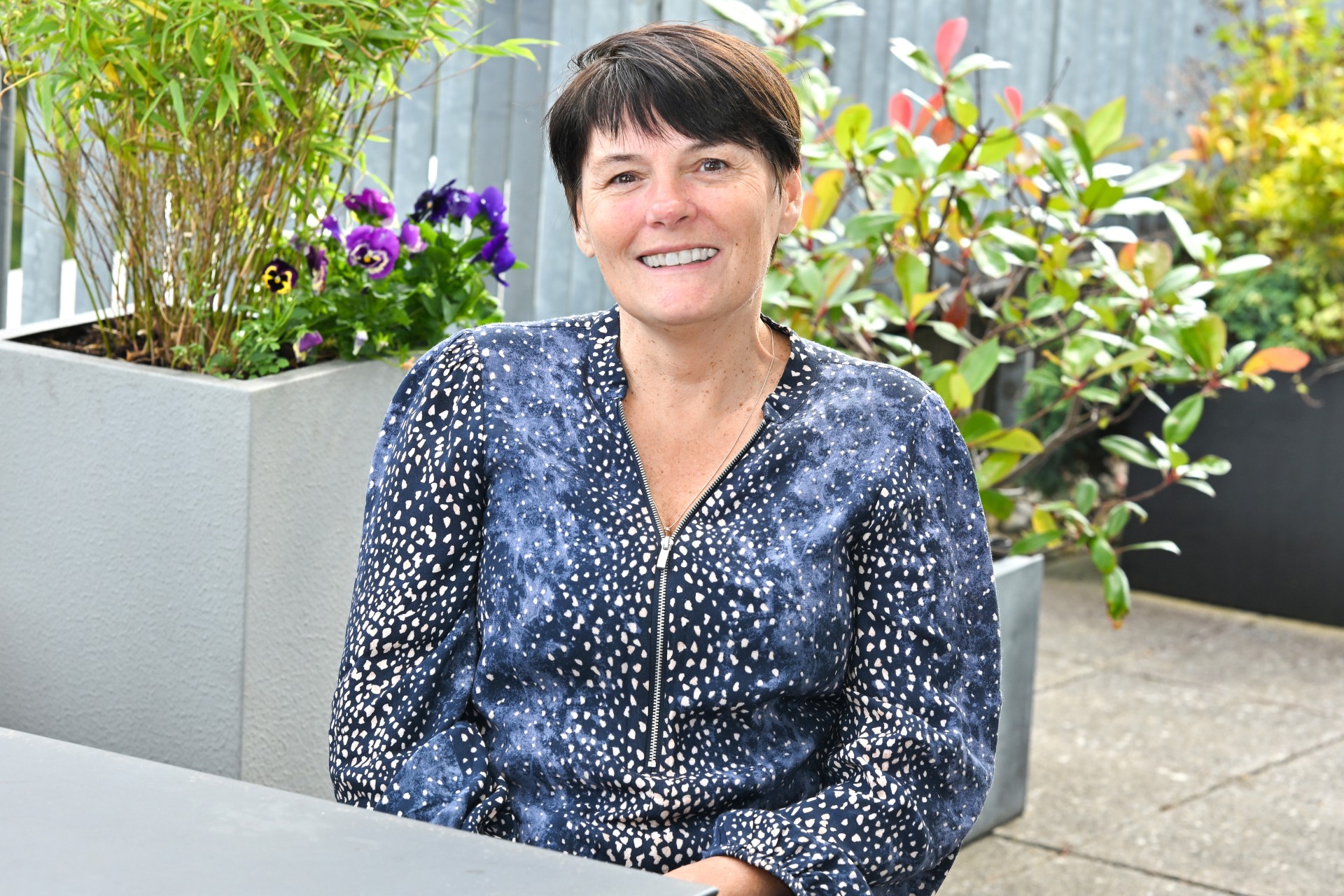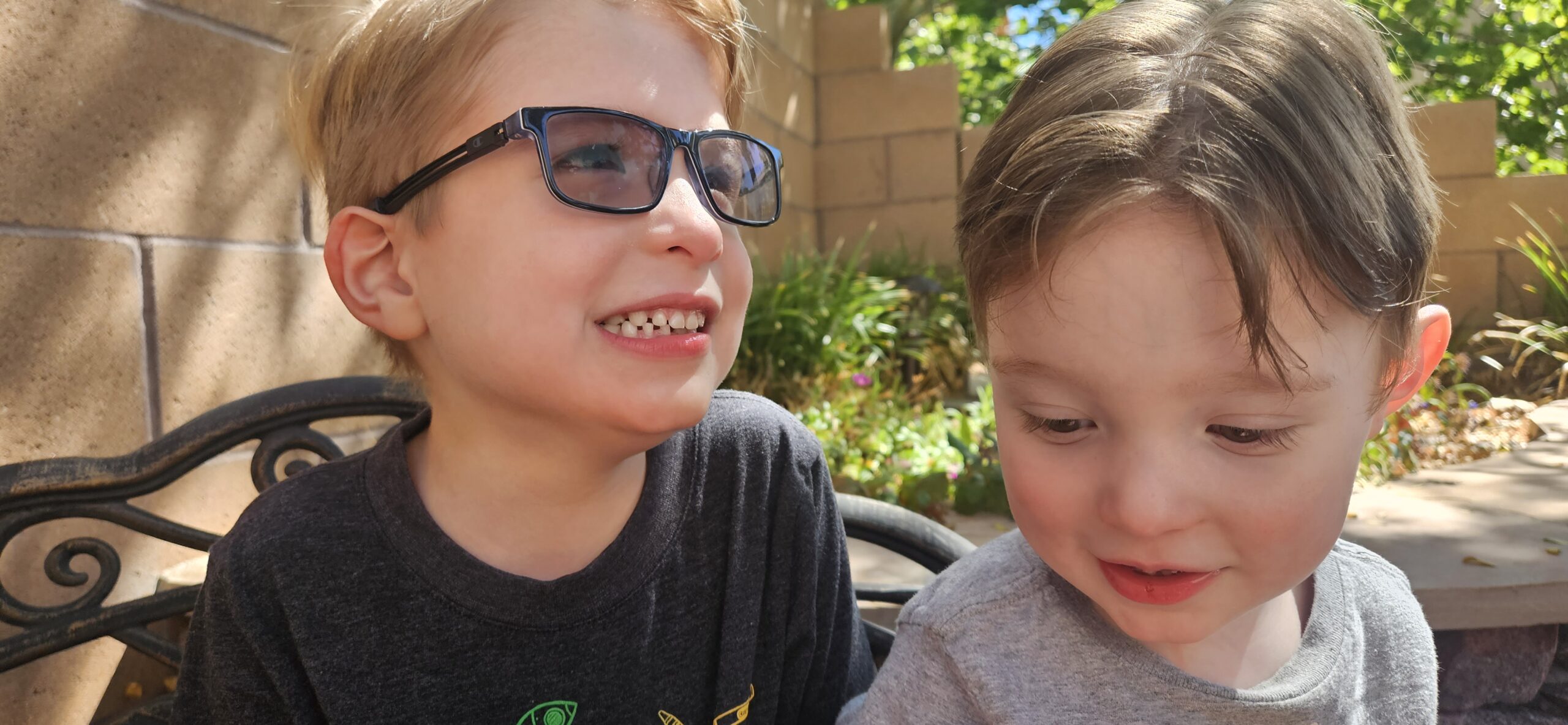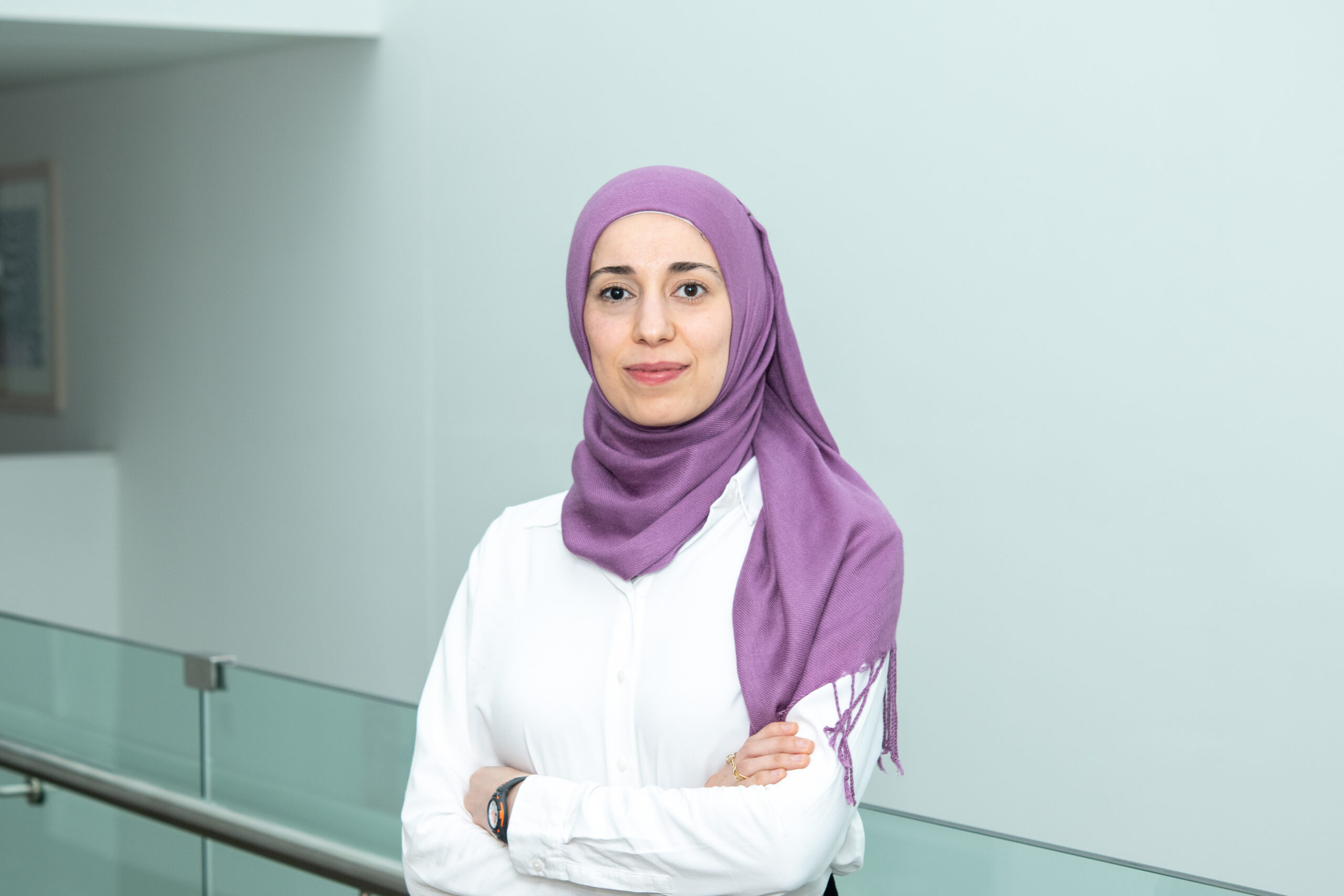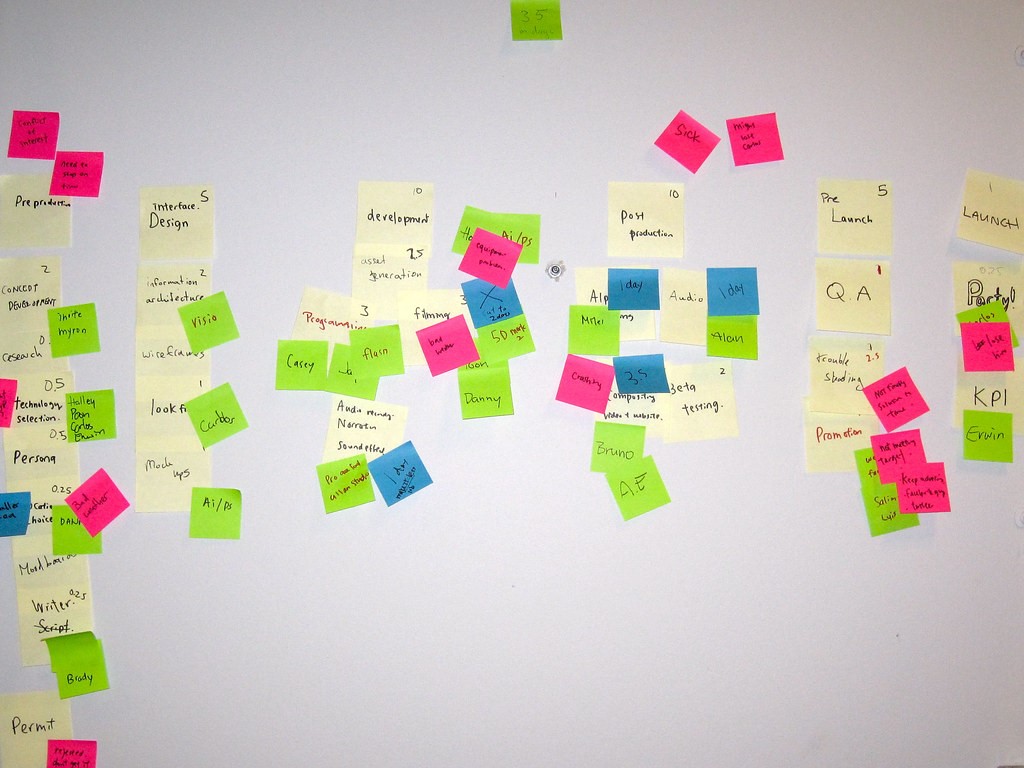By Professor Lesley Stark, Personal Chair of Nucleolar Signalling and Cancer Prevention at IGC Prevention is better than cure is certainly the case for cancer, and especially colorectal cancer. My journey into the prevention of colorectal cancer started in 1997 as a young postdoctoral scientist, under the wing of Malcolm Dunlop. The pathway I was […]
For International Women’s Day, IGC Bioinformatics Analysis Core Manager Dr Jing Su talks about her career and experience as a female leader. I come from China and was born and raised in Beijing, a city rich in history and heritage. Growing up in the capital, I was surrounded by centuries-old landmarks, with the Forbidden City […]
Image: Brothers Benjamin, seven, and Gabriel, three, both have ATR-X syndrome By Rebekah Tillotson, Chancellor’s Fellow at the Institute of Genetics and Cancer With Ben Harris and Jennifer Martinez-Harris, ATRX Research Alliance (a parent-led global group of families committed to accelerating research) ATR-X (Alpha-thalassemia X-linked intellectual disability) syndrome is a rare genetic disorder that affects […]
As a young girl growing up in the Palestinian city of Qalqilya in the West Bank, Roza Masalmeh always remembers wanting to do something related to science. “I loved science,” says Roza, a Postdoctoral Research Fellow at the Institute of Genetics and Cancer. “I wanted to be an inventor or discoverer. I was always doing […]
Hi! My name is Gerda, and I very proudly count myself among the number of medics currently undertaking a PhD in Cancer Biology. Having been inspired by Rowan on the sister MB-PhD TRAM Programme (who’s put out a wonderful piece of writing which you can find here), I thought it might be nice to write […]
Barbara McClintock (1902-1992) shown in her laboratory in 1947 (Smithsonian Institution/Science Service; Restored by Adam Cuerden, Public domain, via Wikimedia Commons) Scientist is a relatively modern word, dating back to 1834 and first used in a review of “On the Connextion of the Physical Sciences” a work of popular science written by the Scottish mathematician […]
The Nicola Murray Centre for Ovarian Cancer Research brings together the laboratories of Professor Charlie Gourley (left), Professor Simon Herrington (centre) and Dr Robb Hollis (right) By Robb Hollis There are at least six different ‘types’ of ovarian cancer, each with their own unique behaviour, including differences in responsiveness to treatments. One of these types […]
“Agile Project Management” by VFS Digital Design is licensed under CC BY 2.0. To view a copy of this license, visit https://creativecommons.org/licenses/by/2.0/?ref=openverse Research. The Cambridge Dictionary1 defines research as ‘a detailed study of a subject, especially in order to discover (new) information or reach a (new) understanding’. The word ‘research’ may evoke an image of […]
Image reference: Created using Google Gemini (1.5 Flash) Quick question, do you also aspire to become a scientist? If you dream of becoming a biomedical scientist, you probably picture yourself in a white lab coat, big goggles on your nose, surrounded by test tubes, and maybe even a few white mice nearby. Or, if space […]
Hi! My name is Janice, and I’m a first-year PhD student in the Genetics and Molecular Medicine programme at the Institute of Genetics and Cancer (IGC). My PhD programme is a collaboration with the Max Delbrück Center for Molecular Medicine in Berlin, so I’ll spend 4–5 months there as part of my studies. I’m excited […]











